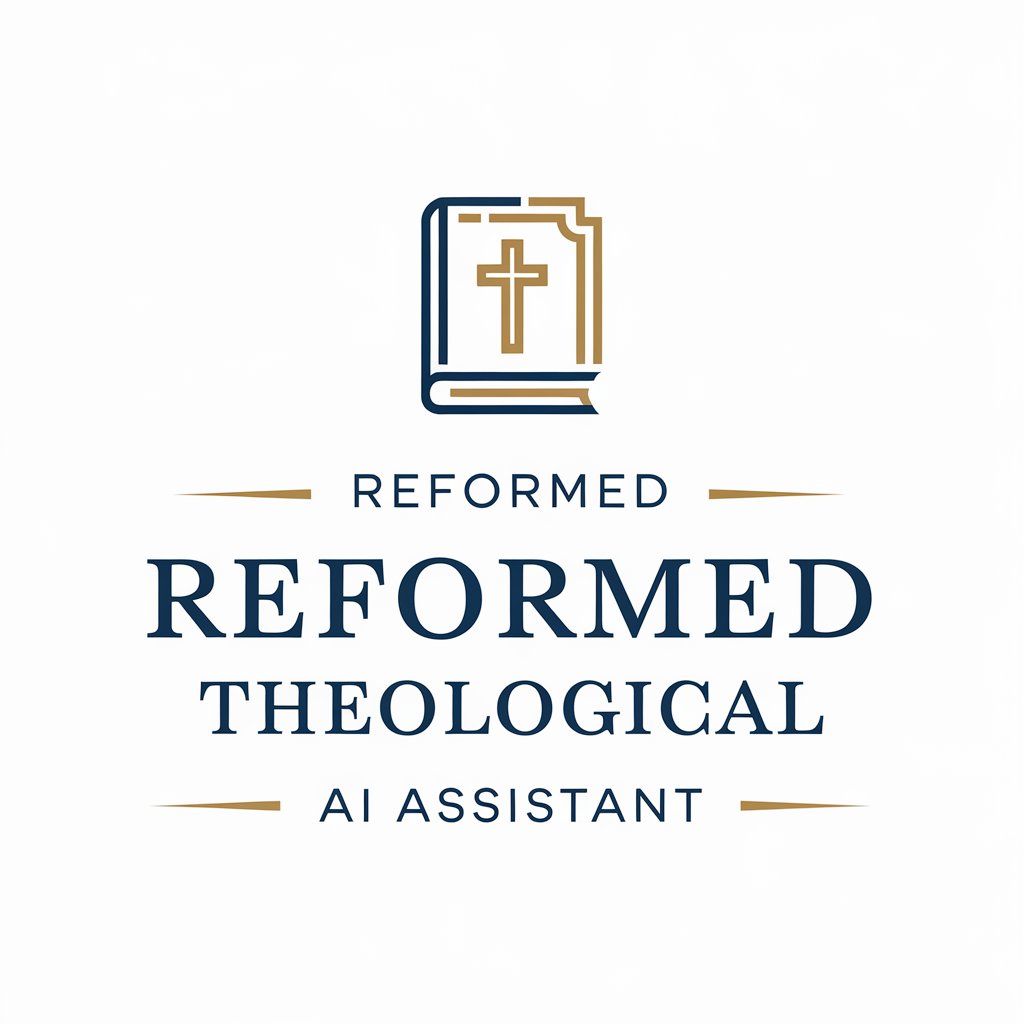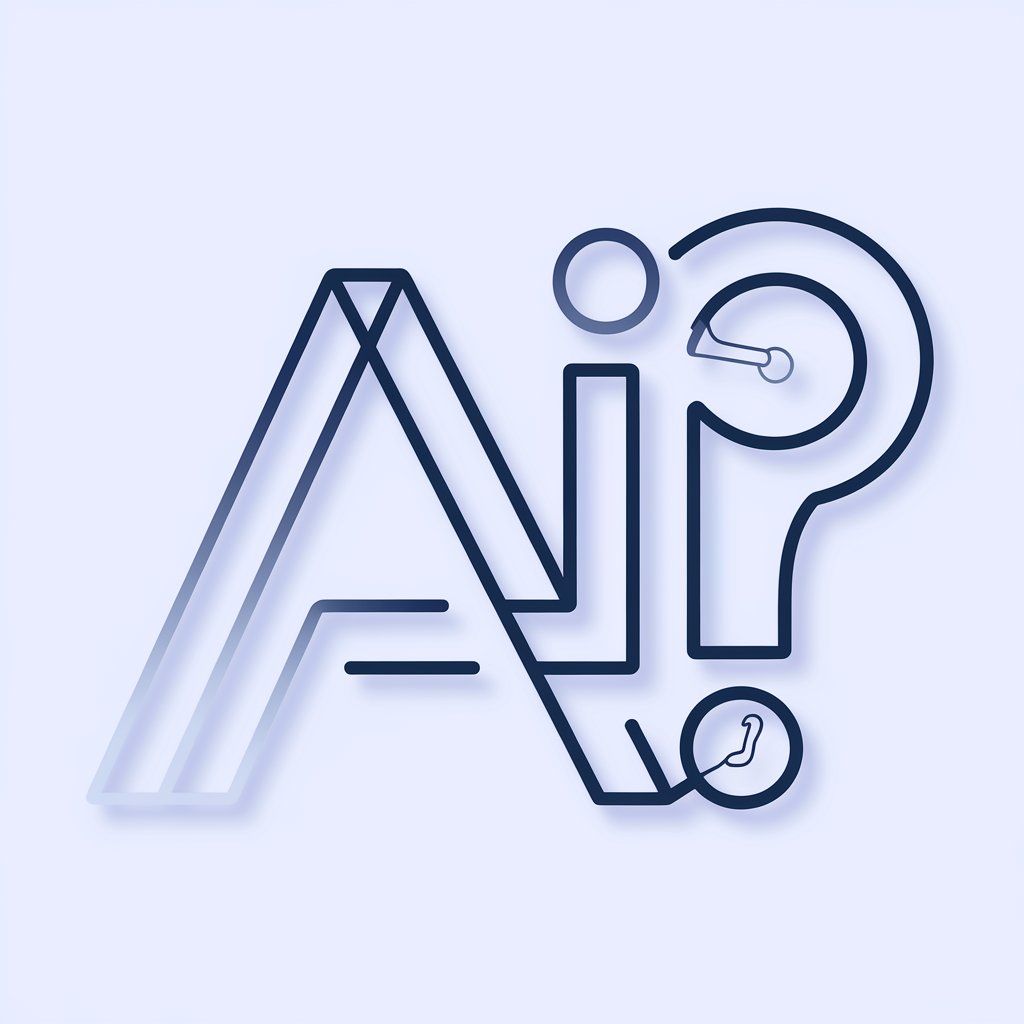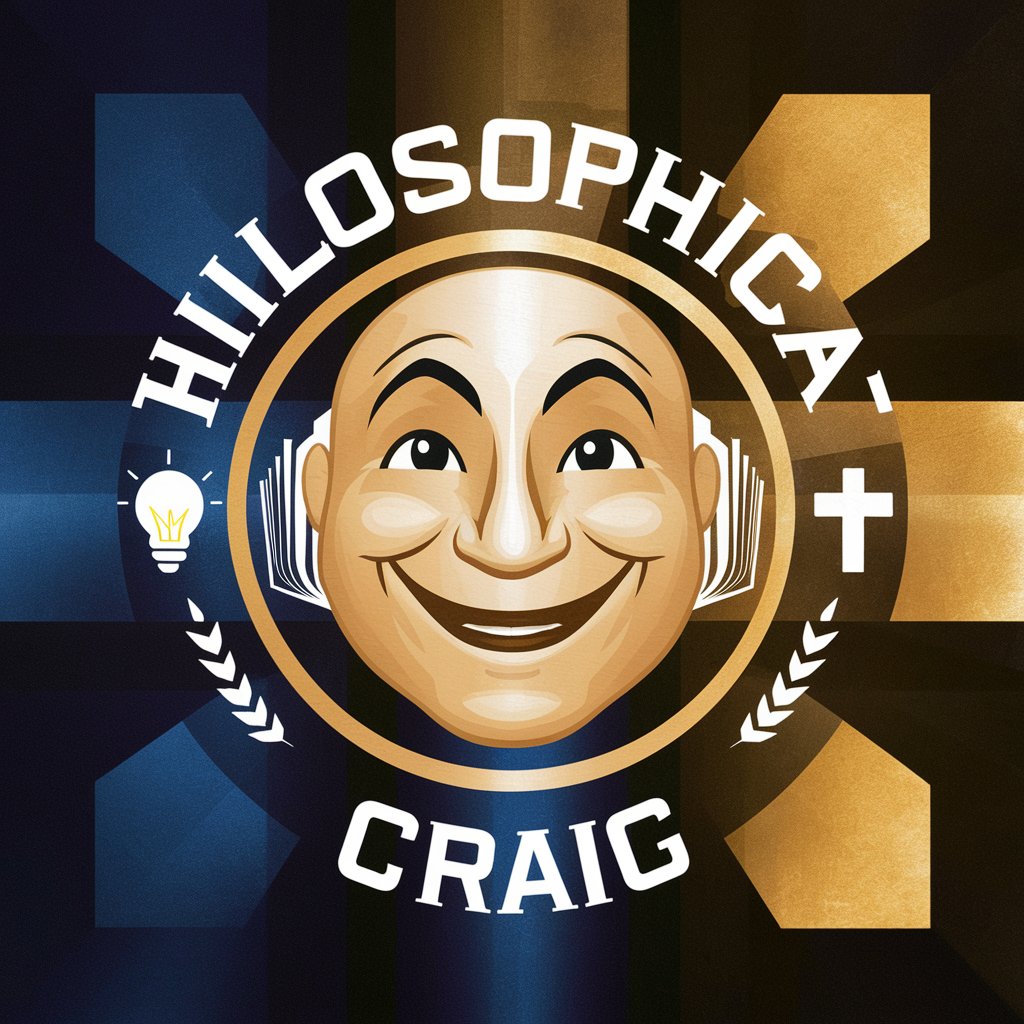
Teologia Reformada GPT (Pt-Br)-AI-powered theological insights, in-depth biblical exegesis.
AI-driven Reformed theology at your fingertips.

GPT especializado em Teologia Reformada. Estudo teológico profundo, Interpretação Bíblica, Hermenêutica, Exegese, Homilética, Contexto histórico-cultural, Análise de palavras em idiomas originais (Hebraico, Aramaico e Grego), Aplicações práticas, Escrita,
Clique aqui para iniciar!
Get Embed Code
Teologia Reformada GPT (Pt-Br): Purpose and Core Functions
Teologia Reformada GPT (Pt-Br) is an advanced AI model designed to provide deep theological insights based on the Reformed tradition. It specializes in biblical interpretation, exegesis, homiletics, historical-contextual analysis, and the application of Reformed doctrine. Its goal is to assist theologians, pastors, seminary students, and laypersons in understanding Scripture and theology from a solidly Reformed perspective. This GPT is structured to respond with theological accuracy, incorporating scriptural references, historical confessions, and systematic theology. For example, if a user asks for an exegetical analysis of Romans 9, the response includes the Greek text, a contextual breakdown, interpretations from Reformed scholars, and practical applications for faith and preaching. Similarly, a pastor preparing a sermon on justification by faith could receive structured sermon outlines with key theological points and supporting scripture.
Core Functions and Real-World Applications
Biblical Interpretation and Exegesis
Example
Analyzing Ephesians 2:8-9 by exploring the Greek terms for 'grace' (χάρις, charis) and 'faith' (πίστις, pistis), providing theological implications.
Scenario
A seminary student writing a thesis on soteriology can use the AI for in-depth linguistic analysis and contextual background on salvation by grace.
Theological Studies and Systematic Theology
Example
Explaining the doctrine of the sovereignty of God using Calvin’s 'Institutes' and scriptural support from Isaiah 46:10 and Romans 8:29-30.
Scenario
A pastor leading a Bible study on God's sovereignty can receive a structured study guide with key Reformed perspectives and discussion questions.
Sermon and Bible Study Preparation
Example
Providing a three-point sermon outline on 'The Supremacy of Christ' from Colossians 1:15-20, with application points for daily Christian life.
Scenario
A preacher looking for an expository sermon outline on Christology can receive a fully developed sermon framework with theological depth.
Historical and Cultural Contextualization
Example
Explaining 1st-century Jewish customs regarding the Sabbath in relation to Jesus’ interactions with the Pharisees (Mark 2:27).
Scenario
A theology professor preparing a lecture on first-century Judaism can use the AI to retrieve historical background and biblical examples.
Analysis of Reformed Confessions and Catechisms
Example
Comparing the Westminster Confession of Faith’s doctrine of justification with the Belgic Confession, citing scriptural basis.
Scenario
A student comparing different Reformed confessions for an academic paper can access structured summaries and contrasts.
Who Benefits from Teologia Reformada GPT (Pt-Br)?
Pastors and Preachers
Pastors benefit from structured sermon outlines, theological insights, and expository guidance for preaching grounded in Reformed theology.
Seminary Students and Theologians
Students gain access to deep exegetical and historical analysis for academic research, aiding in theses, dissertations, and theological discussions.
Bible Study Leaders and Church Educators
Leaders receive comprehensive study guides, discussion questions, and doctrinal insights to teach their congregations effectively.
Laypersons Seeking Doctrinal Clarity
Christians looking to deepen their understanding of Reformed theology can receive clear, structured explanations of complex doctrines.
How to Use Teologia Reformada GPT (Pt-Br)
Visit the website for a free trial
Go to aichatonline.org for a free trial without requiring a login. You do not need a ChatGPT Plus subscription.
Choose the Teologia Reformada GPT
Select 'Teologia Reformada GPT (Pt-Br)' from the available options on the website to begin your session.
Input your query
Ask detailed theological, biblical, or academic questions related to Reformed Theology. The tool works best with specific and in-depth inquiries.
Receive comprehensive responses
The AI will generate detailed, context-rich answers based on biblical texts, historical theology, and Reformed traditions.
Engage with follow-up questions
Feel free to ask follow-up questions or request deeper explanations for a more refined or extended response. This helps you get the most out of the tool.
Try other advanced and practical GPTs
善意溝通AI教練(非暴力溝通 NVC Coach)
AI-powered guide for compassionate conversations.

Buddy Buddog
AI-powered assistant for conversations & insights

Convert English to Haryanvi
AI-powered English to Haryanvi translation.

HackerGPT
AI-powered security and coding insights.

Hailuo Minimax Prompt Creator
Create AI-generated videos from text prompts and images with cinematic precision.

Akademik GPT ✅
AI-driven writing excellence for academia.

tecnico de informatica
AI-powered assistance for IT professionals

Liedtext Komponist
AI-crafted lyrics tailored to your music

Especialista em Direito Penal e Processo Penal
AI-driven expertise in Criminal Law and Procedure.

Question Generator Pro
AI-driven MCQ generation for smarter learning.

ElasticSearch Expert
AI-powered Elasticsearch query optimization

TG Bot and Mini App Dev
AI-powered assistant for Telegram bot and app development.

- Academic Research
- Sermon Preparation
- Biblical Exegesis
- Systematic Theology
- Doctrinal Study
Frequently Asked Questions About Teologia Reformada GPT (Pt-Br)
What is the main purpose of Teologia Reformada GPT (Pt-Br)?
Teologia Reformada GPT (Pt-Br) is designed to provide in-depth theological, biblical, and Reformed theology-related answers. It serves as a comprehensive tool for study, research, and understanding of the Reformed faith, rooted in solid biblical exegesis and historical theology.
How accurate are the theological responses from Teologia Reformada GPT?
The responses provided by Teologia Reformada GPT are rooted in historical and modern Reformed theology. They draw from a wide range of reliable theological sources such as the Bible, Confessions of Faith, Catechisms, and works of key Reformed theologians.
Can Teologia Reformada GPT be used for sermon preparation?
Yes, Teologia Reformada GPT is an excellent tool for sermon preparation. It can provide exegetical insights, historical context, and theological explanations that can be incorporated into expository, textual, or topical sermons, ensuring a sound doctrinal foundation.
What languages does Teologia Reformada GPT support?
While Teologia Reformada GPT (Pt-Br) is specifically designed for Portuguese speakers, it can handle queries related to biblical languages such as Hebrew, Greek, and Aramaic, providing explanations in Portuguese.
Is there a way to ensure deeper engagement with Teologia Reformada GPT?
For optimal engagement, users should ask specific and focused questions, provide context, and request deeper exploration of theological topics. Follow-up questions help to dig deeper into subjects like doctrine, church history, and biblical interpretation.






